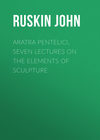Kitabı oku: «Unto This Last, and Other Essays on Political Economy», sayfa 12
ESSAY IV.
AD VALOREM
In the last paper we saw that just payment of labour consisted in a sum of money which would approximately obtain equivalent labour at a future time: we have now to examine the means of obtaining such equivalence. Which question involves the definition of Value, Wealth, Price, and Produce.
None of these terms are yet defined so as to be understood by the public. But the last, Produce, which one might have thought the clearest of all, is, in use, the most ambiguous; and the examination of the kind of ambiguity attendant on its present employment will best open the way to our work.
In his Chapter on Capital,44 Mr. J. S. Mill instances, as a capitalist, a hardware manufacturer, who, having intended to spend a certain portion of the proceeds of his business in buying plate and jewels, changes his mind, and "pays it as wages to additional workpeople." The effect is stated by Mr. Mill to be that "more food is appropriated to the consumption of productive labourers."
Now I do not ask, though, had I written this paragraph, it would surely have been asked of me, What is to become of the silversmiths? If they are truly unproductive persons, we will acquiesce in their extinction. And though in another part of the same passage, the hardware merchant is supposed also to dispense with a number of servants, whose "food is thus set free for productive purposes," I do not inquire what will be the effect, painful or otherwise, upon the servants, of this emancipation of their food. But I very seriously inquire why ironware is produce, and silverware is not? That the merchant consumes the one, and sells the other, certainly does not constitute the difference, unless it can be shown (which, indeed, I perceive it to be becoming daily more and more the aim of tradesmen to show) that commodities are made to be sold, and not to be consumed. The merchant is an agent of conveyance to the consumer in one case, and is himself the consumer in the other:45 but the labourers are in either case equally productive, since they have produced goods to the same value, if the hardware and the plate are both goods.
And what distinction separates them? It is indeed possible that in the "comparative estimate of the moralist," with which Mr. Mill says political economy has nothing to do (III. i. 2), a steel fork might appear a more substantial production than a silver one: we may grant also that knives, no less than forks, are good produce; and scythes and ploughshares serviceable articles. But, how of bayonets? Supposing the hardware merchant to effect large sales of these, by help of the "setting free" of the food of his servants and his silversmith,—is he still employing productive labourers, or, in Mr. Mill's words, labourers who increase "the stock of permanent means of enjoyment" (I. iii. 4)? Or if, instead of bayonets, he supply bombs, will not the absolute and final "enjoyment" of even these energetically productive articles (each of which costs ten pounds46) be dependent on a proper choice of time and place for their enfantement; choice, that is to say, depending on those philosophical considerations with which political economy has nothing to do?47
I should have regretted the need of pointing out inconsistency in any portion of Mr. Mill's work, had not the value of his work proceeded from its inconsistencies. He deserves honour among economists by inadvertently disclaiming the principles which he states, and tacitly introducing the moral considerations with which he declares his science has no connection. Many of his chapters, are, therefore, true and valuable; and the only conclusions of his which I have to dispute are those which follow from his premises.
Thus, the idea which lies at the root of the passage we have just been examining, namely, that labour applied to produce luxuries will not support so many persons as labour applied to produce useful articles, is entirely true; but the instance given fails—and in four directions of failure at once—because Mr. Mill has not defined the real meaning of usefulness. The definition which he has given—"capacity to satisfy a desire, or serve a purpose" (III. i. 2)—applies equally to the iron and silver; while the true definition,—which he has not given, but which nevertheless underlies the false verbal definition in his mind, and comes out once or twice by accident (as in the words "any support to life or strength" in I. i. 5)—applies to some articles of iron, but not to others, and to some articles of silver, but not to others. It applies to ploughs, but not to bayonets; and to forks, but not to filigree.48
The eliciting of the true definition will give us the reply to our first question, "What is value?" respecting which, however, we must first hear the popular statements.
"The word 'value,' when used without adjunct, always means, in political economy, value in exchange" (Mill, III. i. 3). So that, if two ships cannot exchange their rudders, their rudders are, in politico-economic language, of no value to either.
But "the subject of political economy is wealth."—(Preliminary remarks, page 1.)
And wealth "consists of all useful and agreeable objects which possess exchangeable value."—(Preliminary remarks, page 10.)
It appears then, according to Mr. Mill, that usefulness and agreeableness underlie the exchange value, and must be ascertained to exist in the thing, before we can esteem it an object of wealth.
Now, the economical usefulness of a thing depends not merely on its own nature, but on the number of people who can and will use it. A horse is useless, and therefore unsaleable, if no one can ride,—a sword if no one can strike, and meat, if no one can eat. Thus every material utility depends on its relative human capacity.
Similarly: The agreeableness of a thing depends not merely on its own likeableness, but on the number of people who can be got to like it. The relative agreeableness, and therefore saleableness, of "a pot of the smallest ale," and of "Adonis painted by a running brook," depends virtually on the opinion of Demos, in the shape of Christopher Sly. That is to say, the agreeableness of a thing depends on its relative human disposition.49 Therefore, political economy, being a science of wealth, must be a science respecting human capacities and dispositions. But moral considerations have nothing to do with political economy (III. i. 2). Therefore, moral considerations have nothing to do with human capacities and dispositions.
I do not wholly like the look of this conclusion from Mr. Mill's statements:—let us try Mr. Ricardo's.
"Utility is not the measure of exchangeable value, though it is absolutely essential to it."—(Chap. 1. sect. i.) Essential to what degree, Mr. Ricardo? There may be greater and less degrees of utility. Meat, for instance, may be so good as to be fit for any one to eat, or so bad as to be fit for no one to eat. What is the exact degree of goodness which is "essential" to its exchangeable value, but not "the measure" of it? How good must the meat be, in order to possess any exchangeable value; and how bad must it be—(I wish this were a settled question in London markets)—in order to possess none?
There appears to be some hitch, I think, in the working even of Mr. Ricardo's principles; but let him take his own example. "Suppose that in the early stages of society the bows and arrows of the hunter were of equal value with the implements of the fisherman. Under such circumstances the value of the deer, the produce of the hunter's day's labour, would be exactly" (italics mine) "equal to the value of the fish, the product of the fisherman's day's labour. The comparative value of the fish and game would be entirely regulated by the quantity of labour realized in each." (Ricardo, chap. iii. On Value.)
Indeed! Therefore, if the fisherman catches one sprat, and the huntsman one deer, one sprat will be equal in value to one deer; but if the fisherman catches no sprat, and the huntsman two deer, no sprat will be equal in value to two deer?
Nay; but—Mr. Ricardo's supporters may say—he means, on an average;—if the average product of a day's work of fisher and hunter be one fish and one deer, the one fish will always be equal in value to the one deer.
Might I inquire the species of fish. Whale? or whitebait?50
It would be waste of time to pursue these fallacies farther; we will seek for a true definition.
Much store has been set for centuries upon the use of our English classical education. It were to be wished that our well-educated merchants recalled to mind always this much of their Latin schooling,—that the nominative of valorem (a word already sufficiently familiar to them) is valor; a word which, therefore, ought to be familiar to them. Valor, from valere, to be well, or strong (ὑγιαίνω);—strong, in life (if a man), or valiant; strong, for life (if a thing), or valuable. To be "valuable," therefore, is to "avail towards life." A truly valuable or availing thing is that which leads to life with its whole strength. In proportion as it does not lead to life, or as its strength is broken, it is less valuable; in proportion as it leads away from life, it is unvaluable or malignant.
The value of a thing, therefore, is independent of opinion, and of quantity. Think what you will of it, gain how much you may of it, the value of the thing itself is neither greater nor less. For ever it avails, or avails not; no estimate can raise, no disdain depress, the power which it holds from the Maker of things and of men.
The real science of political economy, which has yet to be distinguished from the bastard science, as medicine from witchcraft, and astronomy from astrology, is that which teaches nations to desire and labour for the things that lead to life; and which teaches them to scorn and destroy the things that lead to destruction. And if, in a state of infancy, they suppose indifferent things, such as excrescences of shellfish, and pieces of blue and red stone, to be valuable, and spend large measure of the labour which ought to be employed for the extension and ennobling of life, in diving or digging for them, and cutting them into various shapes,—or if, in the same state of infancy, they imagine precious and beneficent things, such as air, light, and cleanliness, to be valueless,—or if, finally, they imagine the conditions of their own existence, by which alone they can truly possess or use anything, such, for instance, as peace, trust, and love, to be prudently exchangeable, when the market offers, for gold, iron, or excrescences of shells—the great and only science of Political Economy teaches them, in all these cases, what is vanity, and what substance; and how the service of Death, the Lord of Waste, and of eternal emptiness, differs from the service of Wisdom, the Lady of Saving, and of eternal fulness; she who has said, "I will cause those that love me to inherit Substance; and I will Fill their treasures."
The "Lady of Saving," in a profounder sense than that of the savings' bank, though that is a good one: Madonna della Salute,—Lady of Health—which, though commonly spoken of as if separate from wealth, is indeed a part of wealth. This word, "wealth," it will be remembered, is the next we have to define.
"To be wealthy," says Mr. Mill, is "to have a large stock of useful articles."
I accept this definition. Only let us perfectly understand it. My opponents often lament my not giving them enough logic: I fear I must at present use a little more than they will like; but this business of Political Economy is no light one, and we must allow no loose terms in it.
We have, therefore, to ascertain in the above definition, first, what is the meaning of "having," or the nature of Possession. Then, what is the meaning of "useful," or the nature of Utility.
And first of possession. At the crossing of the transepts of Milan Cathedral has lain, for three hundred years, the embalmed body of St. Carlo Borromeo. It holds a golden crosier, and has a cross of emeralds on its breast. Admitting the crosier and emeralds to be useful articles, is the body to be considered as "having" them? Do they, in the politico-economical sense of property, belong to it? If not, and if we may, therefore, conclude generally that a dead body cannot possess property, what degree and period of animation in the body will render possession possible?
As thus: lately in a wreck of a Californian ship, one of the passengers fastened a belt about him with two hundred pounds of gold in it, with which he was found afterwards at the bottom. Now, as he was sinking—had he the gold? or had the gold him?51
And if, instead of sinking him in the sea by its weight, the gold had struck him on the forehead, and thereby caused incurable disease—suppose palsy or insanity,—would the gold in that case have been more a "possession" than in the first? Without pressing the inquiry up through instances of gradually increasing vital power over the gold (which I will, however, give, if they are asked for), I presume the reader will see that possession, or "having," is not an absolute, but a gradated, power; and consists not only in the quantity or nature of the thing possessed, but also (and in a greater degree) in its suitableness to the person possessing it, and in his vital power to use it.
And our definition of Wealth, expanded, becomes: "The possession of useful articles, which we can use." This is a very serious change. For wealth, instead of depending merely on a "have," is thus seen to depend on a "can." Gladiator's death, on a "habet"; but soldier's victory, and state's salvation, on a "quo plurimum posset." (Liv. VII. 6.) And what we reasoned of only as accumulation of material, is seen to demand also accumulation of capacity.
So much for our verb. Next for our adjective. What is the meaning of "useful?"
The inquiry is closely connected with the last. For what is capable of use in the hands of some persons, is capable, in the hands of others, of the opposite of use, called commonly, "from-use," or "ab-use." And it depends on the person, much more than on the article, whether its usefulness or ab-usefulness will be the quality developed in it. Thus, wine, which the Greeks, in their Bacchus, made, rightly, the type of all passion, and which, when used, "cheereth god and man" (that is to say, strengthens both the divine life, or reasoning power, and the earthly, or carnal power, of man); yet, when abused, becomes "Dionusos," hurtful especially to the divine part of man, or reason. And again, the body itself, being equally liable to use and to abuse, and, when rightly disciplined, serviceable to the State, both for war and labour;—but when not disciplined, or abused, valueless to the State, and capable only of continuing the private or single existence of the individual (and that but feebly)—the Greeks called such a body an "idiotic" or "private" body, from their word signifying a person employed in no way directly useful to the State: whence, finally, our "idiot," meaning a person entirely occupied with his own concerns.
Hence, it follows, that if a thing is to be useful, it must be not only of an availing nature, but in availing hands. Or, in accurate terms, usefulness is value in the hands of the valiant; so that this science of wealth being, as we have just seen, when regarded as the science of Accumulation, accumulative of capacity as well as of material,—when regarded as the science of Distribution, is distribution not absolute, but discriminate; not of every thing to every man, but of the right thing to the right man. A difficult science, dependent on more than arithmetic.
Wealth, therefore, is "THE POSSESSION OF THE VALUABLE BY THE VALIANT;" and in considering it as a power existing in a nation, the two elements, the value of the thing, and the valour of its possessor, must be estimated together. Whence it appears that many of the persons commonly considered wealthy, are in reality no more wealthy than the locks of their own strong boxes are; they being inherently and eternally incapable of wealth; and operating for the nation, in an economical point of view, either as pools of dead water, and eddies in a stream (which, so long as the stream flows, are useless, or serve only to drown people, but may become of importance in a state of stagnation, should the stream dry); or else, as dams in a river, of which the ultimate service depends not on the dam, but the miller; or else, as mere accidental stays and impediments, acting, not as wealth, but (for we ought to have a correspondent term) as "illth," causing various devastation and trouble around them in all directions; or lastly, act not at all, but are merely animated conditions of delay (no use being possible of anything they have until they are dead), in which last condition they are nevertheless often useful as delays, and "impedimenta," if a nation is apt to move too fast.
This being so, the difficulty of the true science of Political Economy lies not merely in the need of developing manly character to deal with material value, but in the fact, that while the manly character and material value only form wealth by their conjunction, they have nevertheless a mutually destructive operation on each other. For the manly character is apt to ignore, or even cast away, the material value:—whence that of Pope:—
"Sure, of qualities demanding praise
More go to ruin fortunes, than to raise."
And on the other hand, the material value is apt to undermine the manly character; so that it must be our work, in the issue, to examine what evidence there is of the effect of wealth on the minds of its possessors; also, what kind of person it is who usually sets himself to obtain wealth, and succeeds in doing so; and whether the world owes more gratitude to rich or to poor men, either for their moral influence upon it, or for chief goods, discoveries, and practical advancements. I may, however, anticipate future conclusions so far as to state that in a community regulated only by laws of demand and supply, but protected from open violence, the persons who become rich are, generally speaking, industrious, resolute, proud, covetous, prompt, methodical, sensible, unimaginative, insensitive, and ignorant. The persons who remain poor are the entirely foolish, the entirely wise,52 the idle, the reckless, the humble, the thoughtful, the dull, the imaginative, the sensitive, the well-informed, the improvident, the irregularly and impulsively wicked, the clumsy knave, the open thief, and the entirely merciful, just, and godly person.
Thus far then of wealth. Next, we have to ascertain the nature of Price; that is to say, of exchange value, and its expression by currencies.
Note first, of exchange, there can be no profit in it. It is only in labour there can be profit—that is to say a "making in advance," or "making in favour of" (from proficio). In exchange, there is only advantage, i.e., a bringing of vantage or power to the exchanging persons. Thus, one man, by sowing and reaping, turns one measure of corn into two measures. That is Profit. Another by digging and forging, turns one spade into two spades. That is Profit. But the man who has two measures of corn wants sometimes to dig; and the man who has two spades wants sometimes to eat:—They exchange the gained grain for the gained tool; and both are the better for the exchange; but though there is much advantage in the transaction, there is no profit. Nothing is constructed or produced. Only that which had been before constructed is given to the person by whom it can be used. If labour is necessary to effect the exchange, that labour is in reality involved in the production, and, like all other labour, bears profit. Whatever number of men are concerned in the manufacture, or in the conveyance, have share in the profit; but neither the manufacture nor the conveyance are the exchange, and in the exchange itself there is no profit.
There may, however, be acquisition, which is a very different thing. If, in the exchange, one man is able to give what cost him little labour for what has cost the other much, he "acquires" a certain quantity of the produce of the other's labour. And precisely what he acquires, the other loses. In mercantile language, the person who thus acquires is commonly said to have "made a profit;" and I believe that many of our merchants are seriously under the impression that it is possible for everybody, somehow, to make a profit in this manner. Whereas, by the unfortunate constitution of the world we live in, the laws both of matter and motion have quite rigorously forbidden universal acquisition of this kind. Profit, or material gain, is attainable only by construction or by discovery; not by exchange. Whenever material gain follows exchange, for every plus there is a precisely equal minus.
Unhappily for the progress of the science of Political Economy, the plus quantities, or—if I may be allowed to coin an awkward plural—the pluses, make a very positive and venerable appearance in the world, so that every one is eager to learn the science which produces results so magnificent; whereas the minuses have, on the other hand, a tendency to retire into back streets, and other places of shade,—or even to get themselves wholly and finally put out of sight in graves: which renders the algebra of this science peculiar, and difficultly legible; a large number of its negative signs being written by the account-keeper in a kind of red ink, which starvation thins, and makes strangely pale, or even quite invisible ink, for the present.
The science of Exchange, or, as I hear it has been proposed to call it, of "Catallactics," considered as one of gain, is, therefore, simply nugatory; but considered as one of acquisition, it is a very curious science, differing in its data and basis from every other science known. Thus:—If I can exchange a needle with a savage for a diamond, my power of doing so depends either on the savage's ignorance of social arrangements in Europe, or on his want of power to take advantage of them, by selling the diamond to any one else for more needles. If, farther, I make the bargain as completely advantageous to myself as possible, by giving to the savage a needle with no eye in it (reaching, thus, a sufficiently satisfactory type of the perfect operation of catallactic science), the advantage to me in the entire transaction depends wholly upon the ignorance, powerlessness, or heedlessness of the person dealt with. Do away with these, and catallactic advantage becomes impossible. So far, therefore as the science of exchange relates to the advantage of one of the exchanging persons only, it is founded on the ignorance or incapacity of the opposite person. Where these vanish, it also vanishes. It is therefore a science founded on nescience, and an art founded on artlessness. But all other sciences and arts, except this, have for their object the doing away with their opposite nescience and artlessness. This science, alone of sciences, must, by all available means, promulgate and prolong its opposite nescience; otherwise the science itself is impossible. It is, therefore, peculiarly and alone, the science of darkness; probably a bastard science—not by any means a divina scientia, but one begotten of another father, that father who, advising his children to turn stones into bread, is himself employed in turning bread into stones, and who, if you ask a fish of him (fish not being producible on his estate), can but give you a serpent.
The general law, then, respecting just or economical exchange, is simply this:—There must be advantage on both sides (or if only advantage on one, at least no disadvantage on the other) to the persons exchanging; and just payment for his time, intelligence, and labour, to any intermediate person effecting the transaction (commonly called a merchant): and whatever advantage there is on either side, and whatever pay is given to the intermediate person, should be thoroughly known to all concerned. All attempt at concealment implies some practice of the opposite, or undivine science, founded on nescience. Whence another saying of the Jew merchant's—"As a nail between the stone joints, so doth sin stick fast between buying and selling." Which peculiar riveting of stone and timber, in men's dealing with each other, is again set forth in the house which was to be destroyed—timber and stones together—when Zechariah's roll (more probably "curved sword") flew over it: "the curse that goeth forth over all the earth upon every one that stealeth and holdeth himself guiltless," instantly followed by the vision of the Great Measure;—the measure "of the injustice of them in all the earth" (αὔτη ἡ ἀδικία αὐτῶν ἐν πάσῇ τῇ γῃ), with the weight of lead for its lid, and the woman, the spirit of wickedness, within it;—that is to say, Wickedness hidden by Dulness, and formalized, outwardly, into ponderously established cruelty. "It shall be set upon its own base in the land on Babel."53
I have hitherto carefully restricted myself, in speaking of exchange, to the use of the term "advantage;" but that term includes two ideas: the advantage, namely, of getting what we need, and that of getting what we wish for. Three-fourths of the demands existing in the world are romantic; founded on visions, idealisms, hopes, and affections; and the regulation of the purse is, in its essence, regulation of the imagination and the heart. Hence, the right discussion of the nature of price is a very high metaphysical and psychical problem; sometimes to be solved only in a passionate manner, as by David in his counting the price of the water of the well by the gate of Bethlehem; but its first conditions are the following:—The price of anything is the quantity of labour given by the person desiring it, in order to obtain possession of it. This price depends on four variable quantities. A. The quantity of wish the purchaser has for the thing; opposed to α, the quantity of wish the seller has to keep it. B. The quantity of labour the purchaser can afford, to obtain the thing; opposed to β, the quantity of labour the seller can afford, to keep it. These quantities are operative only in excess; i.e., the quantity of wish (A) means the quantity of wish for this thing, above wish for other things; and the quantity of work (B) means the quantity which can be spared to get this thing from the quantity needed to get other things.
Phenomena of price, therefore, are intensely complex, curious, and interesting—too complex, however, to be examined yet; every one of them, when traced far enough, showing itself at last as a part of the bargain of the Poor of the Flock (or "flock of slaughter"), "If ye think good, give ME my price, and if not, forbear"—Zech. xi. 12; but as the price of everything is to be calculated finally in labour, it is necessary to define the nature of that standard.
Labour is the contest of the life of man with an opposite:—the term "life" including his intellect, soul, and physical power, contending with question, difficulty, trial, or material force.
Labour is of a higher or lower order, as it includes more or fewer of the elements of life: and labour of good quality, in any kind, includes always as much intellect and feeling as will fully and harmoniously regulate the physical force.
In speaking of the value and price of labour, it is necessary always to understand labour of a given rank and quality, as we should speak of gold or silver of a given standard. Bad (that is, heartless, inexperienced, or senseless) labour cannot be valued; it is like gold of uncertain alloy, or flawed iron.54
The quality and kind of labour being given, its value, like that of all other valuable things, is invariable. But the quantity of it which must be given for other things is variable: and in estimating this variation, the price of other things must always be counted by the quantity of labour; not the price of labour by the quantity of other things.
Thus, if we want to plant an apple sapling in rocky ground, it may take two hours' work; in soft ground, perhaps only half an hour. Grant the soil equally good for the tree in each case. Then the value of the sapling planted by two hours' work is nowise greater than that of the sapling planted in half an hour. One will bear no more fruit than the other. Also, one half-hour of work is as valuable as another half-hour; nevertheless the one sapling has cost four such pieces of work, the other only one. Now the proper statement of this fact is, not that the labour on the hard ground is cheaper than on the soft; but that the tree is dearer. The exchange value may, or may not, afterwards depend on this fact. If other people have plenty of soft ground to plant in, they will take no cognizance of our two hours' labour, in the price they will offer for the plant on the rock. And if, through want of sufficient botanical science, we have planted an upas-tree instead of an apple, the exchange value will be a negative quantity; still less proportionate to the labour expended.
What is commonly called cheapness of labour, signifies, therefore, in reality, that many obstacles have to be overcome by it; so that much labour is required to produce a small result. But this should never be spoken of as cheapness of labour, but as dearness of the object wrought for. It would be just as rational to say that walking was cheap, because we had ten miles to walk home to our dinner, as that labour was cheap, because we had to work ten hours to earn it.
The last word which we have to define is "Production."
I have hitherto spoken of all labour as profitable; because it is impossible to consider under one head the quality or value of labour, and its aim. But labour of the best quality may be various in aim. It may be either constructive ("gathering," from con and struo), as agriculture; nugatory, as jewel-cutting; or destructive ("scattering," from de and struo), as war. It is not, however, always easy to prove labour, apparently nugatory, to be actually so;55 generally, the formula holds good, "he that gathereth not, scattereth;" thus, the jeweller's art is probably very harmful in its ministering to a clumsy and inelegant pride. So that, finally, I believe nearly all labour may be shortly divided into positive and negative labour: positive, that which produces life; negative, that which produces death; the most directly negative labour being murder, and the most directly positive, the bearing and rearing of children: so that in the precise degree in which murder is hateful, on the negative side of idleness, in that exact degree child-rearing is admirable, on the positive side of idleness. For which reason, and because of the honour that there is in rearing56 children, while the wife is said to be as the vine (for cheering), the children are as the olive-branch, for praise; nor for praise only, but for peace (because large families can only be reared in times of peace): though since, in their spreading and voyaging in various directions, they distribute strength, they are, to the home strength, as arrows in the hand of the giant—striking here and there, far away.
It must be kept in mind, however, that I use the word "demand" in a somewhat different sense from economists usually. They mean by it "the quantity of a thing sold." I mean by it "the force of the buyer's capable intention to buy." In good English, a person's "demand" signifies, not what he gets, but what he asks for.
Economists also do not notice that objects are not valued by absolute bulk or weight, but by such bulk and weight as is necessary to bring them into use. They say, for instance, that water bears no price in the market. It is true that a cupful does not, but a lake does; just as a handful of dust does not, but an acre does. And were it possible to make even the possession of the cupful or handful permanent (i.e., to find a place for them), the earth and sea would be bought up by handfuls and cupfuls.
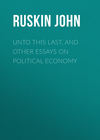
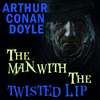
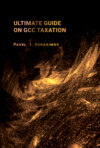
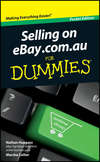
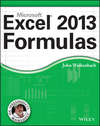
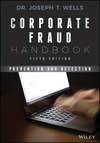
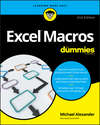
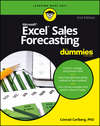
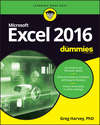


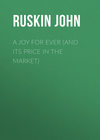






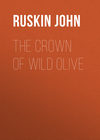
![Stones of Venice [introductions]](https://cdn.litres.ru/pub/c/cover_100/34843654.jpg)
